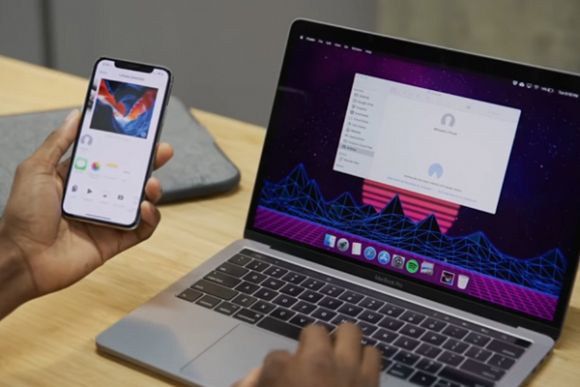The digital world is unlocking new capabilities of human behaviour, writes Paul Budde.
IT IS ASTONISHING to look at the technological developments over the last 50 years, but even more so in the last ten years. Humans have always evolved with the assistance of tools, but in the past some of these developments took millennia or centuries to develop. For most people, let us say until the Middle Ages, very little changed within the lifetime of an individual person.
The Age of Enlightenment and the freedom to use science to progress society started to make a huge difference in this process. Steam engines, electricity, telecommunication and the motor car all saw rapid changes happening within a person’s lifetime and therefore the notion of progress was born.
Now fast forward to 2021 and we have seen an enormous change in the tools we use and how we use them. This is having an enormous effect on our culture and even on our mental life.
We now have devices in our pocket that only a few decades ago would require an airconditioned computer room at the costs of hundreds of thousands of dollars in the value of those days; millions if we would translate that to today.
That combination of low cost and massive memory and processing power is now creating a real revolution in humanity. And as all revolutions go, there are losers and winners and there are casualties as well.
Obviously, the losers and the casualties are getting most of the attention, as bad news sells much better than good news.
But the good news is that these tools are providing us with opportunities that allow us to make quicker and better decisions. We see this happening with the "winners": the people and companies that thrive in this new digital environment. So, let us for a moment look at that.
Some scientists have called the brain the most complex construction on the globe. With neuroscience, we now know a lot more about our brain and we are rapidly learning in this field, which is exciting.
We know that the brain has over one hundred hubs, central processing units, with a network of billions of sensors (neurons) and an access network between all this, making our fastest fibre to the home networks look like goat tracks.
This brain has a very high level of plasticity. It can create new tracks if others fail; it can even transfer processes from one hub to another if one of them fails, get damaged, or was faulty at birth.
That same level of plasticity comes in handy when we start using new tools such the smartphone, the internet and a range of other digital tools. To a certain extent, they can free up processes we normally execute ourselves and as such, it can extend our overall storage and memory capacity.
Our brain has been developed over hundreds of thousand or most likely millions of years, so it is unlikely something will physically change anytime soon.
However, we can use our brain more efficiently and most likely, our brain has also more capacity that we can use. While the physical elements of the brain are most likely unchanging, its output does. Here is where new digital tools are making a difference and as a result, our brain can potentially make better decisions more quickly.
As we are in a digital revolution, things do not always go to plan and in the end, we are humans and there is also a streak in us that sees misuse of these tools for personal gain, mischief, profit, or plain criminal purposes.
The former U.S. President Donald Trump is a classic example of this and the damage he is causing to the mental state of millions of his countrymen shows the negative results of the digital revolution on thought processes and cognitive behaviour.
The human adoption curve of these new technologies favours well-educated younger people more than poorer, less educated older people. It will take time to get more and more people trained to use these tools to their advantage and in a community sense, for the benefit of society.
That will require vigilance to guide this process in the right direction. This is what we have done with other innovations over time. When electricity arrived, hundreds of people died because of a total lack of safety around it. Look at how unsafe cars were 30 or 50 years ago.
Admittedly, the digital revolution is of a different magnitude and significantly complex. It will be more difficult to guide this process. At the same time, these tools are essential to managing complex societies and rapidly increased global population. They most certainly are needed to assist us to make better decisions quicker.
However, "digital natives" do have extra responsibility in this process. They need to show leadership in making the right use of these tools and the right decisions. They must assist to educate the people around them.
Paul Budde is an Independent Australia columnist and managing director of Paul Budde Consulting, an independent telecommunications research and consultancy organisation. You can follow Paul on Twitter @PaulBudde.
Related Articles
- Macquarie Group is set to shake up the digital infrastructure market
- What 2021 will have in store for the ICT industry
- New European legislation aims to control digital platforms
 This work is licensed under a Creative Commons Attribution-NonCommercial-NoDerivs 3.0 Australia License
This work is licensed under a Creative Commons Attribution-NonCommercial-NoDerivs 3.0 Australia License
Support independent journalism Subscribe to IA.















